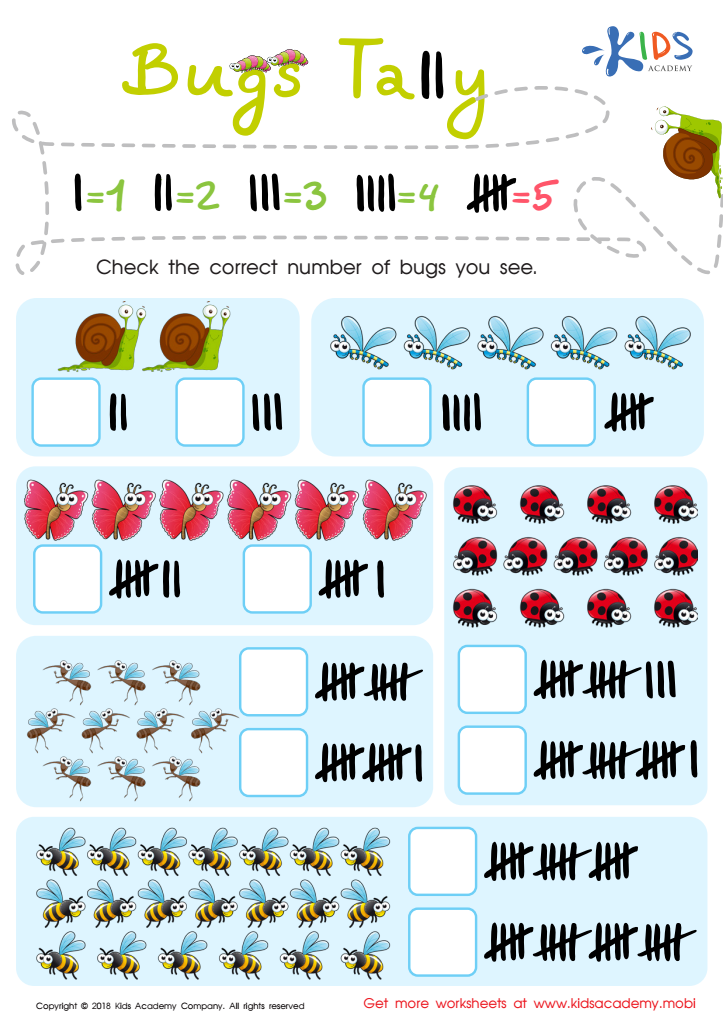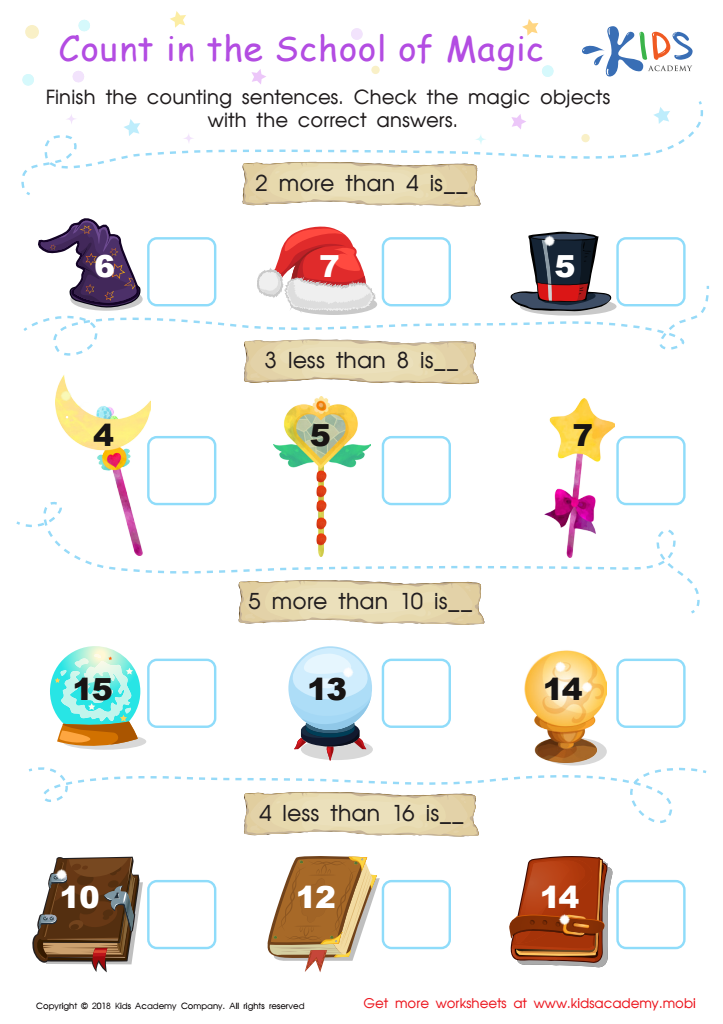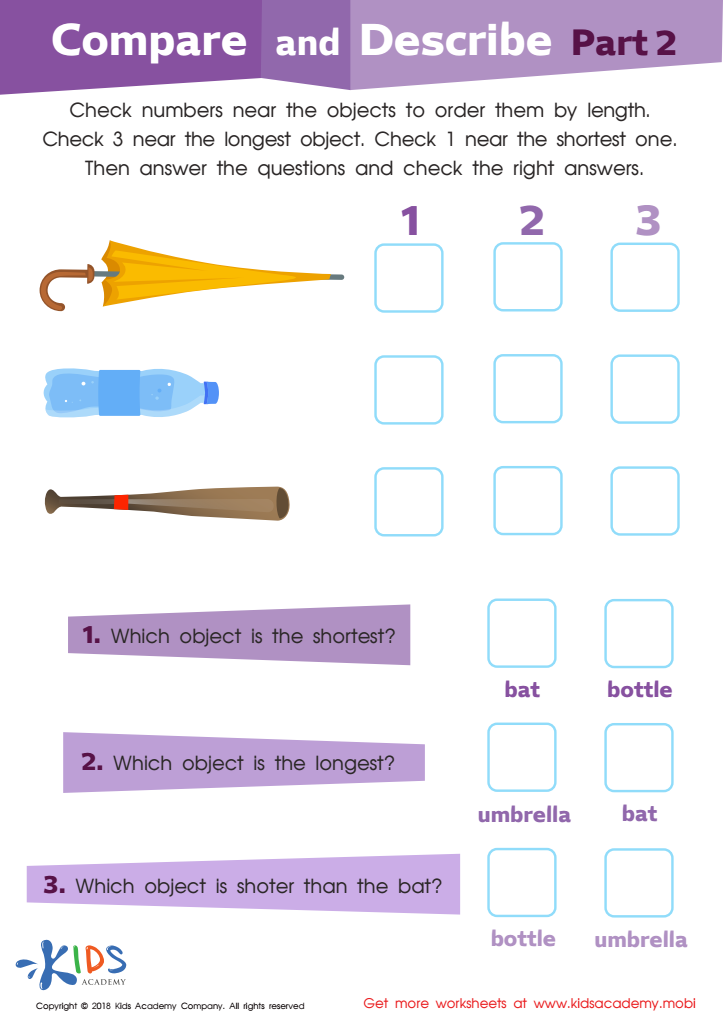Observational skills Math Worksheets for Ages 7-9
6 filtered results
-
From - To
Enhance your child's observational skills with our engaging Math Worksheets designed for ages 7-9! These printable resources blend fun and learning, helping young learners sharpen their ability to notice details, patterns, and relationships in numbers and shapes. Each worksheet focuses on interactive activities that promote critical thinking and problem-solving, making math both enjoyable and approachable. Tailored to align with educational standards, our worksheets support classroom learning while fostering independent exploration. Give your child the tools they need to excel in math by developing their observational skills, all while having fun! Perfect for at-home practice or supplementing classroom instruction.


Bugs Tally Worksheet


Count in the School of Magic Worksheet


Party Arrays Worksheet


Compare and Describe: Part 2 Worksheet
Observational skills in math are crucial for children aged 7-9 as they form the foundation for advanced mathematical understanding. During this developmental stage, children are learning to make sense of the world around them, and observational skills help them connect mathematical concepts to real-life situations. By honing these skills, children can identify patterns, make comparisons, and recognize relationships between different objects and numbers, which enhances their problem-solving ability.
Teachers and parents should care about developing these skills because they encourage critical thinking and curiosity. When children observe and explore their environment, they engage in active learning, making math relevant and engaging. This not only fosters a love for the subject but also prepares them for higher-level thinking in the future.
Furthermore, observational skills aid in the development of statistics and geometry concepts, as children learn to gather data, recognize shapes, and understand spatial relationships. These abilities are foundational for subjects beyond elementary math, supporting overall academic success. By focusing on observational skills, we create a strong mathematical foundation, equipping children with the tools they need to excel in academics and in their everyday lives. In essence, nurturing these skills is an investment in their future educational journeys.
 Assign to My Students
Assign to My Students


















